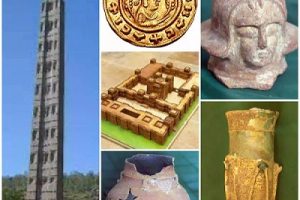BY ADDISALEM MULAT
The United Nations and its agencies have been dozens of times trying to internalize and politicize Ethiopia’s purely internal affairs in an apparent attempt to impose the political interests of some member countries.
Contrary to international law and principles, some right groups and humanitarian agencies have been engaged in defamatory and smear campaigns against Ethiopia. Leveling baseless allegations against the Ethiopian government, these UN rights groups have been misleading international communities.
However, the allegations of possible genocides were laid bare following the joint investigations of the UN Human Rights Council and the Ethiopian Human Rights Commission concluded that no genocide has been committed in Tigray state.
In what could be a continuation of the unfair treatment of Ethiopia on global stage, following a pressing request from the European Union, the United Nations Human Rights Council is expected to host a special session on the human rights situation in Ethiopia.
Reacting to the proposed meeting, the Ministry of Foreign Affairs of Ethiopia said in a statement that Ethiopia was perplexed and saddened by the regrettable situation unfolding at the United Nations Human Rights Council in Geneva.
After months of hard work by the joint investigation team which made its findings public last month, and after the commitment expressed by the Government to implement the recommendations set forth in the report, some in the Human Rights Council, who have utter disregard for the efforts made and work done by the Government, have felt the need to call for a special session to have some sort of an outcome to achieve what seems to be a politically motivated objective, added the statement.
This, of course, is not the first time Ethiopia witnessed such an unjust and counterproductive attempt by some to exert political pressure. At the 47th Session of the Council, despite the Ethiopian Government‘s repeated appeal for the Council to allow the joint investigation team to complete its work, these countries went on to adopt a resolution that neither involved the country concerned nor consider the call by others to withdraw the resolution.
“After the release of the above-mentioned joint investigation report, the Ethiopian government welcomed the findings and established a High-Level Inter-Ministerial Taskforce to implement the recommendations therein. What is even more disheartening is the fact that, amid these important undertakings, and with utter disregard for the work that has been done prior to the commencement of the joint investigation, some members still choose to advance their political agenda through the work of the Council.”
Ethiopia, therefore, calls on members of the Human Rights Council to categorically reject and vote against the special session and its politically motivated outcome. What should have been a priority for the Council instead was the urgent task of carrying out an investigation into the violations of human rights and atrocities committed by the TPLF terrorist group in the Afar and the Amhara Regional States. It is unfortunate to witness that no such call has come forth from some in the Council. This has to be immediately rectified.
“The Government of Ethiopia would like to assure members of the Human Rights Council and the international community of its commitment to continue to engage in a constructive manner and fulfill its obligations under international law to respect, protect and fulfill human rights.”
In a statement sent to The Ethiopian Herald, the Ethiopian Civil Society Organizations Council (ECSOC) urged the international community and mainstream media to reconsider their position and denounce the terrorist TPLF’s horrific acts against the sovereignty of Ethiopia and innocent civilians.
The council stated that since the war started, the international community has been taking the wrong stance and measures that did not rationally take account of the realities which have already put the country and the lives of its people at stake.
Unnecessary sanctions and embargoes have been directed on Ethiopia with the very aim of pressurizing the Government to stop the war and settle the dispute through negotiations, while no visible effort is seen to have been made to exert the same pressure on all the conflicting parties. However, the impositions have not brought the desired result rather they threw our ordinary citizens into ditches and made their lives horrific.
Council has called the international Communities and Countries to come one step forward to really understand the reality on the ground and refrain from taking unnecessary measures to jeopardize the lives of millions of Ethiopians.
Since the very day the war started, some have presented fake news, misleading information with the aim of damaging personalities, distorting facts, and spoiling Ethiopia’s image.
Accordingly, the council has denounced the international community and some local media which have been providing false information regarding Ethiopia’s northern conflict. The council has been taking steps to save Ethiopia from the danger it is facing and denounce those who stand against the sovereignty of the country and the wellbeing of its people.
As a result of this war, lack of peace, instability, displacement of myriads of women and men, including children and the elderly, have been observed in different places in Ethiopia.
“Besides, conflicting parties have the responsibility to observe minimum standards from the humanitarian as well as human rights perspectives, destruction of infrastructures, like communication networks, water, and electric systems, transportation systems, education facilities, health systems, as well as livelihoods and atrocities committed on civilians revealed in recent reports from the Amhara and Afar states are not acceptable by any standards,” Putting unwarranted pressure against the Ethiopian government, the UN Human Rights Council and other so-called human rights groups fail to squarely denounce the grave human rights abuses committed by the terrorist TPLF group.
In fact, in a promising move, Human Rights Watch recently reported atrocities committed in the Kobo and Chena areas of Amhara states perpetrated by the terrorist group. But, the investigation fails to cover other series of massacres committed in other Amhara and Afar states by the TPLF group.
In fact, Ethiopian Human Rights Commission (EHRC) stated that it has finalized preparations and deployed an investigative team in areas made free from invading TPLF groups in Afar and Amhara states to neutrally look into cases keeping all the necessary steps.
EHRC Chief Commissioner, Daniel Bekele (Ph.D.) said that the commission is issuing balance, neutral and fair reports undertaking all necessary steps in areas in which human rights violations have been committed. Since the commission is set to promote and protect human rights, it is presenting reports at this challenging time devoid of partisanship.
Defying defamations against the commission as if it reports human rights violations in selective areas, he said that the commission is doing all its level best to address defilements without discrimination.
Some reports were issued promptly, and some others may show a sluggish pace due to security issues. Since our activities always depend on the principles of independence, impartiality, transparency, integrity, and that doing no harm, all reports of ours are accredited by international organizations as well, he explained.
“The Global Alliance of National Human Rights Institutions (GANHRI) has announced that it has re-accredited the EHRC with “A” status which means the commission has discharged what is expected of it appropriately. The accreditation is a milestone and an indication that the EHRC is executing its mandate despite conditions that are currently difficult.
“The upgrading from the “B” status which EHRC held since November 2013 to “A” status is a testimony of global recognition of EHRC as an independent and effective national human rights institution which can fully comply with global standards, such a candid move allows the commission to directly participate in international human right activities,” he added.
As to him, for instance, the objective of the joint investigation was to provide a faithful account of the situation in areas where a human rights violation was committed and facilitate the process of accountability and ensure necessary compensation for victims. In all of its processes, the joint investigation was guided by the principles of neutrality.
Before the recent report, he added the commission undertook a joint investigation report with OHCHR to rectify alleged violations and abuses of international human rights, humanitarian and refugee law abrogated by all parties during the conflict.
The report about all mishaps in two regions will be released within the next few weeks, and there are indications of serious crimes and severe human rights violations in the areas under discussion.
The Ethiopian Herald December 16/2021





